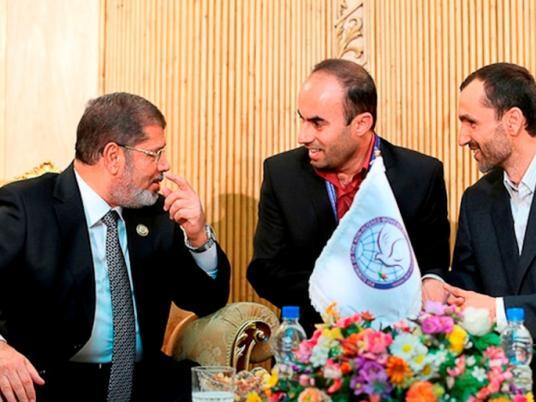
President Mohamed Morsy arrived in Tehran on 30 August to participate in the Non-Aligned Movement summit, in a contentious leap towards diplomatic relations, which have been severed for more than 30 years.
Morsy is the first Egyptian president to set foot in Iran since 1979, following Iran’s Islamic Revolution and Egypt’s peace treaty with Israel. Both countries have depended on interest sections, a low level of diplomatic representation, since their diplomatic ties were severed.
The visit is deemed contentious for a host of players both inside and outside Egypt.
Hamid Gul Sharifi, an Iranian journalist based in London, says there are many obstacles preventing the revival of diplomatic ties between Egypt and Iran — notably, the US and Israel.
“The US and Israel are wary of this visit and how it will affect their interests in the region, and they tried to prevent it from taking place,” Sharifi told Egypt Independent, suggesting that Morsy needs to proceed with caution with Iran, especially ahead of his planned visit to the US in September.
Another player cynically observing the visit is the Gulf, contends Emad Gad, international affairs expert at Al-Ahram Center for Political and Strategic Studies, and former MP. Besides an intricate web of political relations between Egypt and the Gulf, the former is a recipient of important aid packages from the region, which are often negotiated through soft diplomacy.
On the domestic front, Salafi groups have openly condemned the visit, citing Iran’s alliance with the Bashar al-Assad regime in Syria, which for more than a year has been violently cracking down on an ongoing revolution.
“Iran wants to exploit the Non-Aligned Movement summit to break the political isolation imposed on it…This is one of the most important cards [we have] to force the fall of the Syrian regime,” wrote Nader Bakkar, spokesperson of the Salafi Nour Party, in an article titled “No need for [visiting] Iran, Mr. President,” published by the state-run daily Al-Ahram.
However, Mahmoud Hussein, secretary general of the Muslim Brotherhood, voices a different opinion, saying Morsy’s visit could help sway Iran from backing Assad’s regime. He says the Brotherhood supported Morsy’s visit to Iran as a “positive step,” while maintaining their call for Assad to step down in response to the revolutionaries’ demands.
Earlier this month, the new Egyptian president — who has been in power since June — proposed the establishment of a mediation committee including Iran, Egypt, Saudi Arabia and Turkey to help end the bloodshed in Syria. Iranian officials welcomed the proposal.
But more urgent than Syria for Egyptian Salafis is the question of Shias, with some groups expressing their worries that strengthening relations with Iran would help boost the “Shia surge” in a Sunni-dominated Egypt.
According to Bakkar, exporting the “Shia surge” to Africa, and especially Egypt as one of the biggest Islamic countries, is a “hobby” for the Iranian regime.
This piece was originally published in Egypt Independent's weekly print edition.




